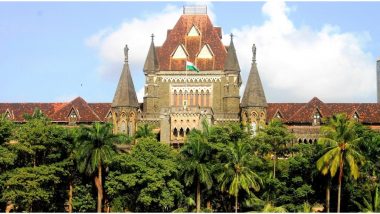Mumbai, August 14: The Bombay High Court on Saturday granted an interim stay to the operation of parts of the recently notified Information Technology Rules, 2021 which require that all online publishers follow a "code of ethics" and norms of conduct. A bench of Chief Justice Dipankar Datta and Justice G S Kulkarni stayed sub-clauses 1 and 3 of clause 9 of the Information Technology (Intermediary Guidelines and Digital Media Ethics Code) Rules, 2021.
It found "prima facie" (on the face of it) that these sub-clauses violated the petitioners' constitutional right to freedom of speech and expression under Article 19, the high court said. Provisions of clause 9 also went beyond the scope of the substantive law (the Information Technology Act of 2000), it said.
The order came on petitions filed by legal news portal The Leaflet and journalist Nikhil Wagle which challenged several provisions of the new IT Rules claiming that they were vague and likely to have a "chilling effect" on a citizen's right to free speech guaranteed by the Constitution. New IT Rules: Google Reportedly Removes Over 11.6 Lakh Harmful Online Content in India.
The Rules went beyond the scope of the main IT Act and also the `reasonable restrictions' on freedom of speech and expression allowed by Article 19 (2) of the Constitution, the petitioners said. The HC, however, refused to stay clause 14 that pertains to the setting up of an inter-ministerial committee with powers to regulate online content and deal with grievances and breach of rules, and clause 16 which is about blocking of online content in case of an emergency.
As such a committee was yet to be formed, it did not see any reason to stay clauses 14 and 16 at present, the court said. The HC also did not stay sub-clause (2) of clause 9 which provides for action in case of the contravention of any law in force for the time being.
The petitioners had sought an interim stay on the implementation of the new IT Rules till the court gives its final decision in the matter. Senior counsel Darius Khambata, lawyer for The Leaflet, had argued that the new IT Rules were beyond the rule-making power of the Union government as the "parent Act", that is the Information Technology Act, did not provide for anything seeking to regulate ethics and content of online publishers. On Friday, the HC had asked the Union government what was the need to introduce the new IT Rules, 2021 without superseding the existing IT Rules of 2009.
The Union government's lawyer Additional Solicitor General Anil Singh had defended making code of ethics mandatory, saying the Press Council of India (PCI) also prescribes a code of ethics for journalists. The norms prescribed by the PCI along with the Cable TV code would be mandatory for digital media under the new rules, he had said. But the judges had pointed out that the PCI's guidelines were in the nature of advisory norms of behaviour, and did not carry any drastic punishment for a breach. New IT Rules: Centre Asks OTT Platforms, Online News Publishers to Give Details on Compliance in 15 Days.
ASG Singh had contended that the need to bring in new rules was felt for checking the spread of fake news and illegal content in the digital space. "We may observe that as far as (clause) 14 is concerned, (there is) no immediate urgency as Committee is not set up. In these circumstances, oversight committee itself has not taken effect. We urge petitioners to come as and when it is set up," the court order said.
"We find no case is made out for stay on (clause) 16. Hence that is not stayed. (Clause) 9 prima facie seems to be against the freedom of speech. We have stayed 9 (1) and (3) and not (2)," the court said. The bench refused the Centre's request to stay the order for a few weeks. It also directed the Union government to file a detailed affidavit replying to the issues raised by the petitioners within three weeks. The high court will hear the petitions further on September 27.













 Quickly
Quickly


